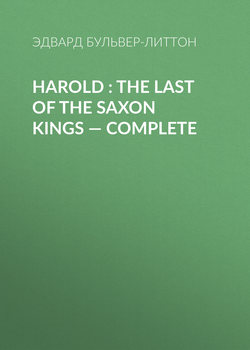Читать книгу Harold : the Last of the Saxon Kings — Complete - Эдвард Джордж Бульвер-Литтон, Эдвард Бульвер-Литтон - Страница 19
HAROLD, THE LAST OF THE SAXON KINGS BOOK IV. THE HEATHEN ALTAR AND THE SAXON CHURCH CHAPTER IV
ОглавлениеWe have seen, in an earlier part of this record, that Harold possessed, amongst his numerous and more stately possessions, a house, not far from the old Roman dwelling-place of Hilda. And in this residence he now (save when with the King) made his chief abode. He gave as the reasons for his selection, the charm it took, in his eyes, from that signal mark of affection which his ceorls had rendered him, in purchasing the house and tilling the ground in his absence; and more especially the convenience of its vicinity to the new palace at Westminster; for, by Edward’s special desire, while the other brothers repaired to their different domains, Harold remained near his royal person. To use the words of the great Norwegian chronicler, “Harold was always with the Court itself, and nearest to the King in all service.”
“The King loved him very much, and kept him as his own son, for he had no children.”’ This attendance on Edward was naturally most close at the restoration to power of the Earl’s family. For Harold, mild and conciliating, was, like Alred, a great peacemaker, and Edward had never cause to complain of him, as he believed he had of the rest of that haughty house. But the true spell which made dear to Harold the rude building of timber, with its doors open all day to his lithsmen, when with a light heart he escaped from the halls of Westminster, was the fair face of Edith his neighbour. The impression which this young girl had made upon Harold seemed to partake of the strength of a fatality. For Harold had loved her before the marvellous beauty of her womanhood began; and, occupied from his earliest youth in grave and earnest affairs, his heart had never been frittered away on the mean and frivolous affections of the idle. Now, in that comparative leisure of his stormy life, he was naturally most open to the influence of a charm more potent than all the glamoury of Hilda.
